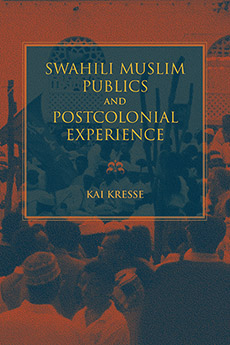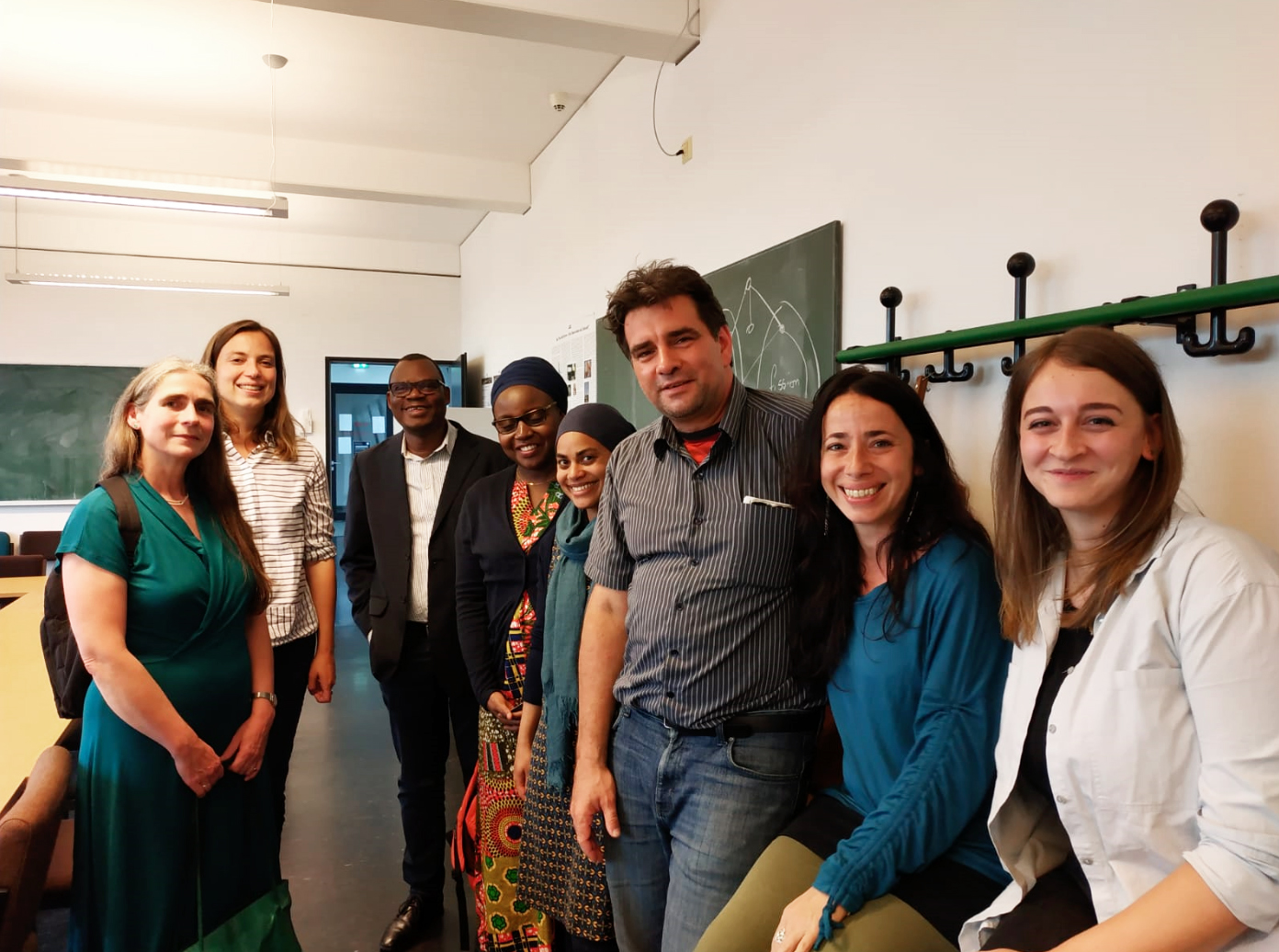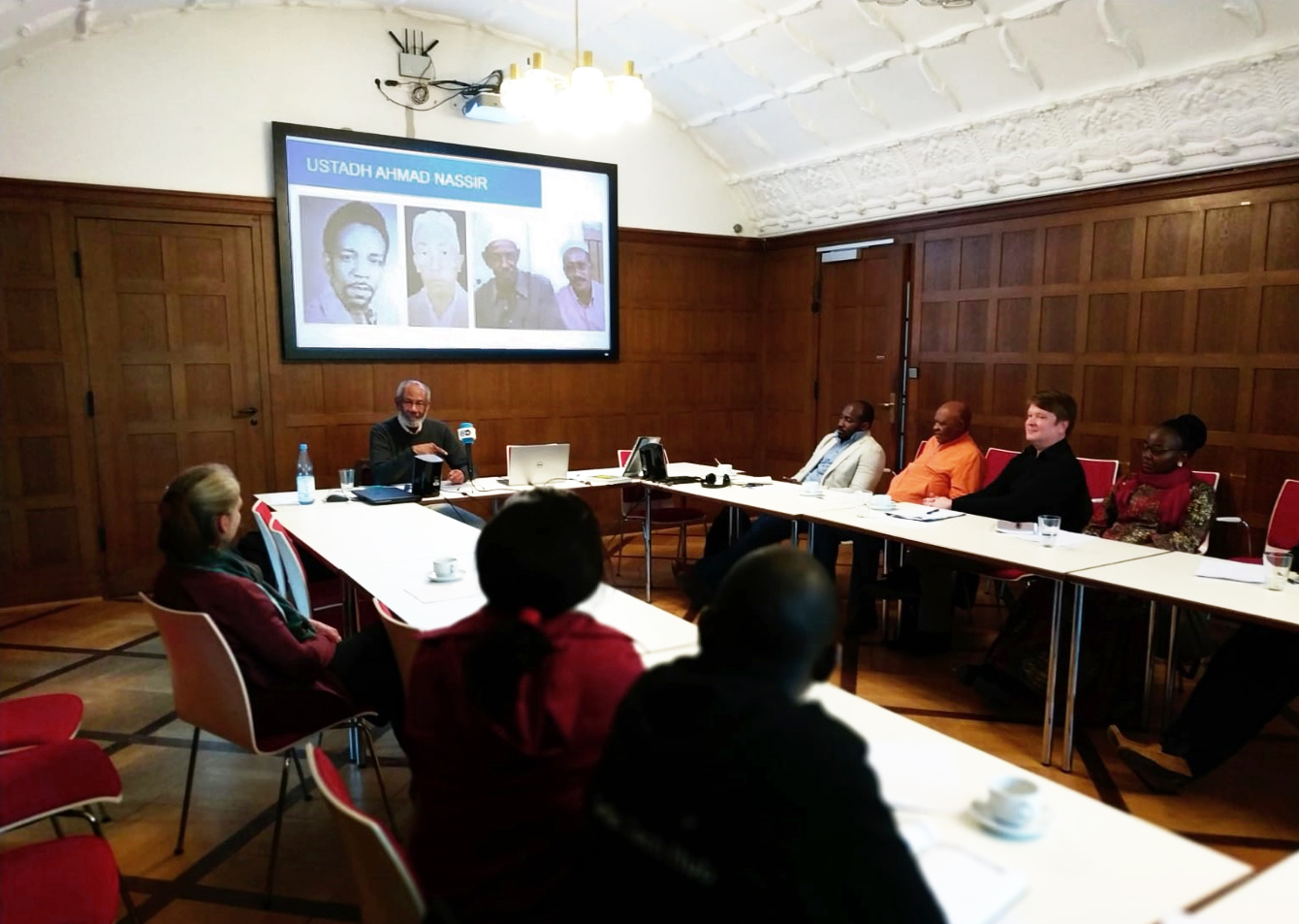|
The Swahili term baraza describes informal meetings and regular discussion rounds among neighbours and friends that occur in everyday street life on the Swahili coast, usually in front of houses and in a casual atmosphere. The term also signifies the location where these gatherings commonly take place: the stone benches on the outer walls of houses in East African coastal towns. These gatherings give locals the opportunity to communally discuss, interpret and question any topics of interest to the attendees and may include the latest news and gossip as well as cultural topics, and religious and political conversations and discussions. In this spirit, the baraza constitutes a place and time for the exchange of knowledge within a familiar social context.
The Baraza la Kiswahili la Berlin (BALAKI-BE) is a Swahili-speaking meeting point, a kind of jour fixe for Swahilophone researchers, advanced students and interested members of the public. Each meeting is ranked around a talk or presentation that may be more or less academic in character; from research papers to biographical accounts a broad range of topics can be covered in this ongoing series of informal discussions.
On the one hand, as a platform for academic exchange on research-related topics, the Baraza la Kiswahili la Berlin (BALAKI-BE) is open to contributions in disciplines ranging from linguistics, literature and history, over to political science, philosophy and social anthropology. It thus acts as a platform for the presentation and discussion of research as well as literary documentation and translation. On the other hand, the baraza offers a space for literary and biographical presentations by East African authors, poets and other personalities, and for discussions with them.

The very first Baraza la Kiswahili la Berlin (BALAKI-BE) took place in July 2008 with two prominent guests from Kenya: The Kenyan poet Ustadh Ahmad Nassir who recited a selection of his poems and the former politician and Islamic scholar, Sheikh Abdilahi Nassir who gave a speech on “Kenyan Muslims and the Righting of Historical Injustices: the Case of Mwambao”  . .

Baraza - Events 2019
Monday, 2 December 2019, 4.15-17.45 pm, ZMO
Second Baraza la Kiswahili la Berlin
Second Baraza with Obala Musumba (Institute for Asian and African Studies, Humboldt University).

Tuesday, 20 May 2019, 4 pm, ZMO
“Majadiliano kuhusu kitabu kipya cha Kai Kresse kiitwacho ‘Swahili Muslim Publics and Postcolonial Experience‘ (2018)” – “Discussion on Kai Kresse’s latest book ‘Swahili Muslim Publics and Postcolonial Experience’ (2018)”
Baraza with Kai Kresse (Freie Universität Berlin/ZMO), Hassan Mwakimako (Pwani University, Kilifi, Kenya), Irene Brunotti (Leipzig University) and Clarissa Vierke (Bayreuth University).
In ten-minute contributions the discussants reviewed the recently published book by Kai Kresse in which he explores the ideas and public discussions that have shaped and defined the experience of Kenyan coastal Muslims. The event was enriched by a video comment of Tanzanian professor Hamza Njozi (Muslim Universitity of Morogoro) who draw parallels with the experience of Tanzanian Muslims and praised the book for its ethnographical and collaborative sensitive approach.
You can find an english translation of professor Njozi's video comment here. |
|
 |
 |

Monday, April 29th, 2019, 4 pm ZMO
„Kumbukumbu ya mshairi marehemu Ustadh Ahmad Nassir“ – „Remembering the late poet Ustadh Ahmad Nassir“
Baraza with Abdilatif Abdalla (Leipzig University) and Kai Kresse (Freie Universität Berlin/ZMO)
Together Abdilatif Abdalla and Kai Kresse remembered the late Swahili poet Ustadh Ahmad Nassir Juma Bhalo, who deceased on January 9th, 2019. Abdilatif Abdalla’s older brother was born in the Kenyan coastal metropolis Mombasa in 1936. He became known in particular through his collections of poems “Malenga wa Mvita” (Oxford University Press, 1971), “Poems from Kenya: Gnomic Verses in Swahili” (University of Wisconsin Press, 1966), “Taa ya Umalenga” (Kenya Literature Bureau, 1978) as well as through his epic “Utenzi wa Mtu ni Utu” (Macmillan, 1979) in which he elucidates utu as key term for understanding humans as moral beings, and he lays out an ethics based on this.
Ustadh Ahmad Nassir was a guest at ZMO at the first baraza in 2008. You can find more information on the event here.
Dr. Harrison Mwalima of Deutsche Welle produced a radio feature about this baraza. You can listen to it here.
|
 |
|

|